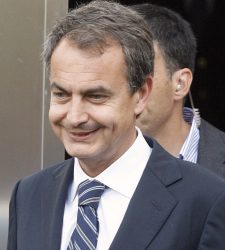
The hour of truth has arrived. This week the Eurozone should agree on how to underpin Greece so that its instability does not spread to countries such as Ireland, Portugal, Belgium and Italy who are also in tight spots. The Athens recovery plan was contracted a year ago and was provided with 110 million euros in loans. All was insufficient. It is not known if political leaders from the Eurozone's four largest economies (Germany, France, Italy and Spain) will be at the height of their economic woes given that the found themselves against the ropes in their respective countries.
Merkel put to the test once again
The conservative German chancellor Angela Merkel is living through one of their worst moments. Her European neighbors are criticizing her tough conditions for approving the EU bailout and support that will prevent another Greek crash. Her perseverance is fed by internal public pressure and opposing voices who are hesitant to continue supporting bailouts.
Sarkozy's situation improves, but not by much
In hardly a month, Nicolas Sarkozy's political situation has turned around, yet it continues somewhat sluggish. He began the year horribly, trying in vain to improve his popularity while facing various scandals between his minister and critiques that his reaction to revolts in Arab countries was too timid. At the end of March, his party lost canton elections, the last big election day before the presidential elections scheduled for April 2012. In opinion polls Dominique Strauss-Kahn has been the favorite.
Silvio Berlusconi struggles to sway Italy
Recent referendums that dismantled nuclear plans, water privatication and the Italian prime minister's immunity are his second electoral setback in fifteen days for Silvio Berlusconi. Il Cavaliere had asked the Italians not to go vote. But for the first time in fifteen years referendum participation rose above 50%.
Zapatero loses credibility
José Luis Rodríguez Zapatero's term in office has been severely damaged in the latest municipal and autonomous elections held on May 22. The president did not hesitate to remember the hard blow and attribute it the the effects of the economic crisis.
Given the magnitude of the May 22 results, another consecuence has to do with the race for his successor. Minister of Defense Carme Chacón exit the run and left a free path to the first vice president Alfredo Pérez Rubalcaba, who in principle has nine months to not let the Spanish Socialist Workers Party sink.